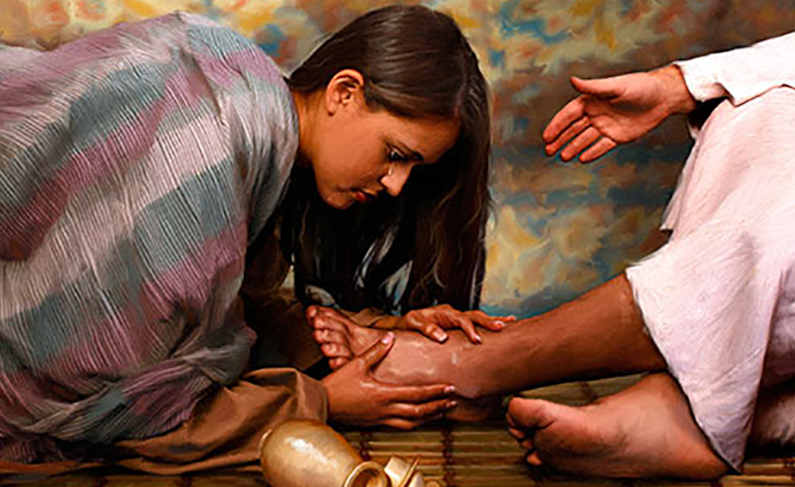“One of the pharisees asked Jesus to eat with him, and he went into the Pharisee’s house and took his place at the table. And a woman in the city, who was a sinner, having learned that he was eating in the Pharisee’s house, brought an alabaster jar of ointment…and began to bathe his feet with her tears….and anoint them with the ointment…”
Luke 7:36-50
In the first century, streets and byways were not paved, therefore the sandal-wearing residents had feet caked with the day’s dust and dirt. The Jewish Encyclopedia says that it was the first duty of a host to give guests water for the washing of their feet, and to omit this was a sign of marked unfriendliness.
Luke does not give any indication that Jesus’ Pharisee host had extended this courtesy to Jesus, and I wonder if there was any awkwardness as Jesus took is place at the table with dirty feet. This might have added to the outrage of the host when a woman entered the men-only gathering and began to attend to the act of courtesy by washing Jesus’ feet with her tears and anointing them with expensive ointment.
The scene could not have been more strained. A woman that Luke calls a sinner, enters uninvited and performs a menial and hospitable act of washing his feet. If you listen, you can hear the self-righteous whispers of disapproval. “Why did Jesus allow such a woman to touch his feet?”
One of the things that strikes me about this episode is the woman’s grief followed by her abject humility–crying so profusely that she had enough tears to wash his feet. She was so unselfish that she poured expensive ointment over Jesus’ feet.
In what seems ironic to me, the Pharisee criticizes Jesus for Jesus lack of ability to see the sinful nature of the woman. But Jesus thoroughly knew of the woman’s condition. Which means that Jesus allowed her to wash his feet precisely because he could see her penitence, not because he didn’t know.
The other half of the irony is that the Pharisee cannot see his own nature. He feels self-righteous when he should be the one washing Jesus’ feet. It reminds me of the aphorism that says, “No is so blind as him who will not see.”
Something to think about: What do you think is the cause of the Pharisee’s blindness?
Something to pray about: Father, a principle sin of human beings is hubris or pride. We pray for the honesty and sight to be able to deal with our own sin and failure rather than to be overcome by self-righteousness. Help us to be more like Jesus in this regard. In Jesus’ name. Amen.

